

Santa always came to my house when I was young. My mother—an ex nun from Oregon who strayed far from the path of Catholicism into the realm of astrology and a relatively strong belief in reincarnation—made sure of it. Despite her cynicism about God and Jesus, she clung to this holiday that had marked her own youth with so much joy. Every year she’d whirl about the kitchen in dust clouds of flour and sugar, baking and filling Christmas tins with cookies, letting my brother and I lick the mixing spoons and beater sticks in the aftermath. A veritable paragon of Christmas spirit, she’d pass her delicious delicacies out to the neighbors, her coworkers, to my grade-school teachers. And my father also had his part to play. A Punjabi Sikh whose birthday happens to be December 25, he’d assert that he was Jesus reborn, exaggerating a wink in my mother’s direction while she prepared his favorite foods—crab curry and spiced taro—for our holiday feast. My brother and I barely slept the night of the 24th, waking up at 5 a.m. on Christmas Day, shrieking and squealing, pulling my sleepy parents out of bed and upstairs where treasures awaited us, only to be tortured by my dad’s insistence on setting up the camcorder.
Chima Christmases were tremendous in their own right, but absolutely different from the Christmases taking place in other American households. That’s the nature of life in the United States; there existed—and still does exist—only a loose sense of uniformity where this holiday is concerned, centered primarily around gift sales at the mall. Aside from the shopping, families generally go their own ways. Some folks get their tree on the first of December, some mid month. Some open presents on the 24th. Others wait until the morning of the 25th. It doesn’t seem to matter. Some people have advent calendars. Others take stocking stuffers to insane heights of serious thought while still others are amused by gifting travel-size shampoos and hair ties, maybe a pack of Tic Tacs. For dinner, every ethnicity has their special dish. The unique customs in nearly every home generate that common question: “So what does your family do for Christmas?” Santa seems to be our only constant, burrowing down our chimneys, eating our cookies and drinking our milk. But for the most part, for those who observe it, Christmas in the United States is individual, each family’s celebration born of a hodgepodge of cultures and backgrounds.
Living now in Budapest, I’m in unfamiliar territory. There’s a sense of cultural and Christmastime solidarity here that I never experienced before in the States. During these cold days, residents of the city venture out of their warm homes in search of traditional foods like hurka and kolbász (two types of sausages), roasted chestnuts, mugs of spiced, hot mulled wine and Christmas sweets. There seems to be less emphasis on gift shopping, and, in the spirit of togetherness, people gather socially to eat and drink at the many fairs and festivals around the city.
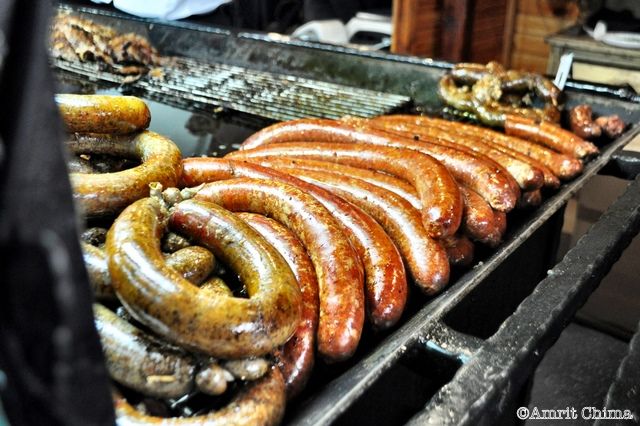 Hurka and kolbász (Hungarian sausages)
Hurka and kolbász (Hungarian sausages)
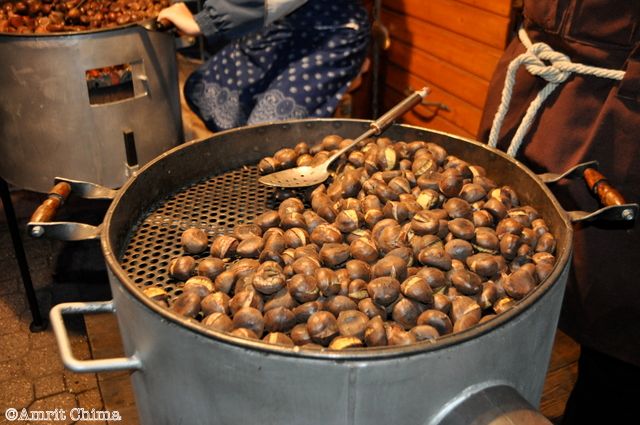 Chestnuts roasting
Chestnuts roasting
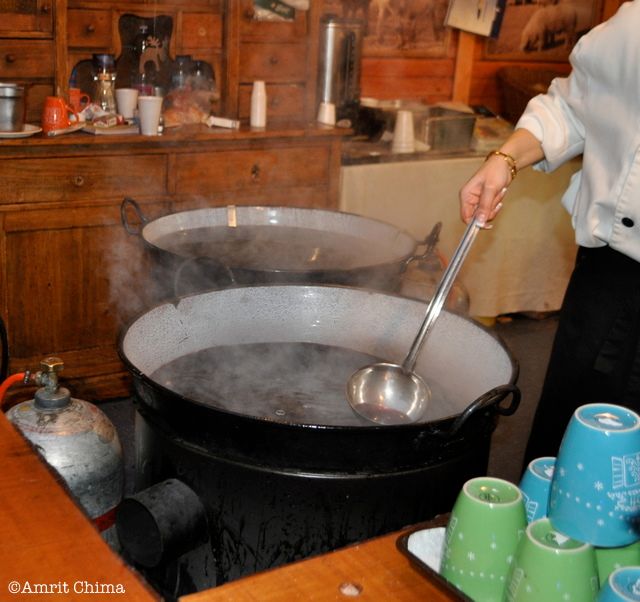 Bubbling, steaming pots of spiced mulled wine
Bubbling, steaming pots of spiced mulled wine
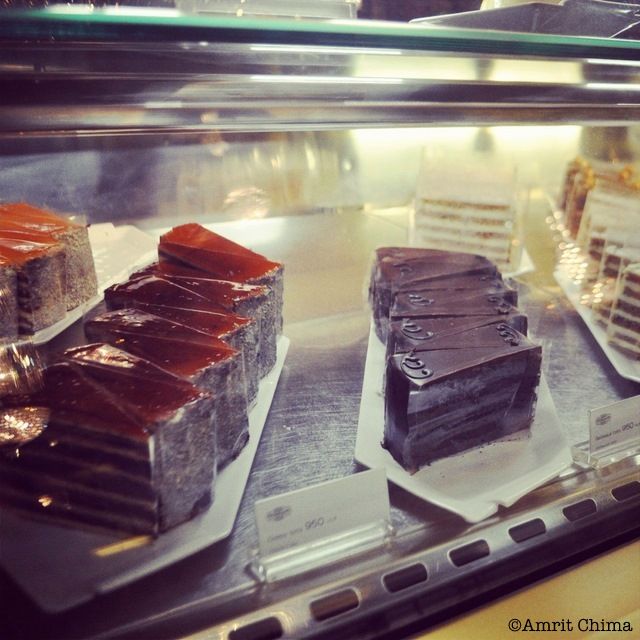 Hungarian sweets from Gerbeaud confectionary at Vörösmarty Tér
Hungarian sweets from Gerbeaud confectionary at Vörösmarty Tér
It’s my first holiday season in Hungary, and although I am still learning what it means to live here, I already have some idea of what to expect. Not on any other random December day, but on Christmas Eve, I’ll be out there with the rest of the country in search of a tree, which I’ll help decorate that evening with gilded nuts and szaloncukor (individually wrapped chocolates) while eating homemade honey cookies and beigli (pastry with walnuts or poppy seed filling). I’ll have fish soup for dinner and sing Christmas songs. I’ll receive a present not from Santa Claus—who already came on December 6th to determine who was naughty and who was nice—but from baby Jesus. And in the morning, on Christmas Day, I’ll attend mass for the first time in my life, joining the rest of the country in celebration, the people connected during this time by a history of beautiful and shared tradition.
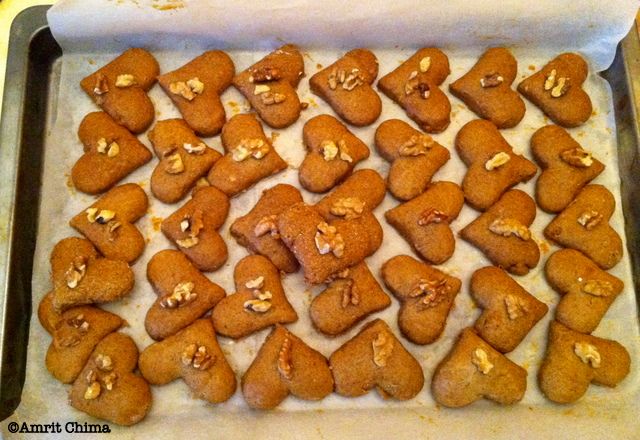 Homemade honey cookies
Homemade honey cookies
Still, I’m feeling a bit wistful for my Christmas, the one that no other but my brother, my ex-nun mother, my Punjabi father and I celebrated. The one with a ten-foot-tall tree we cut down ourselves and lit every night in anticipation of the big day, the one with crab curry, the one totally unmoored in anything remotely religious, the one that isolated us in a little bubble of familial safety and warmth. And although I appreciate the opportunity to partake in the customs of another country, I’ll be thinking of what Christmas used to be like at home, before growing older dulled the magic and my parents stopped pulling out the box of Christmas decorations from the garage rafters. Nothing since then has gotten me willingly out of bed at five in the morning.


